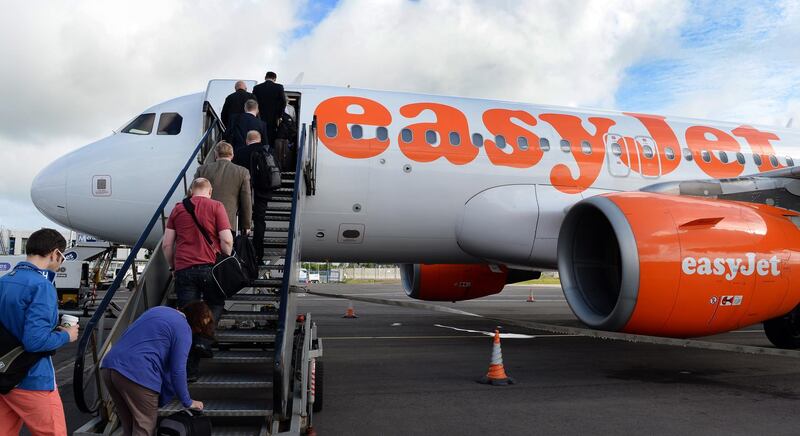British low-cost carrier easyJet warned on Monday that demand for tickets and prices were coming under pressure because of Brexit jitters and a weaker economic outlook, sending shares in European airlines lower.
In a trading update, easyJet confirmed its previous expectations for a £275 million (Dh1.32 billion) loss in the six months to the end of March but added it was concerned by signs of a weakening consumer mood and softer ticket yields across Europe.
Shares in the company sank 8 per cent in response and those in Ryanair, British Airways-owner IAG, Air France KLM and Deutsche Lufthansa were among the worst performers on the pan-European STOXX 600 index as investors worried about the peak summer season.
"There is a slowdown and the uncertainty around Brexit is affecting the consumer confidence in the third quarter and also going into the fourth quarter," easyJet chief Executive Officer Johan Lundgren told analysts.
"We also expect the overall environment in Europe to get worse, because that's what [air traffic network] Eurocontrol has signalled."
Easyjet had previously been among the more bullish voices in the sector on the fallout of Britain's progress on leaving the EU, playing down the risks when it raised dividend payouts last November.
It said on Monday that it expected revenue per seat at constant currency to be slightly higher in the second half, having fallen 7.3 per cent as it invested in new capacity in the first half. It gave no numbers on the outlook for the next six months other than to say that it was now "more cautious".
European airlines are already battling over-capacity and high fuel costs. Iceland's Wow air was the latest casualty last Thursday, halting operations and cancelling all future flights after failing to raise more funds.
Airline chiefs said last month that while carriers will be able to withstand the impact of Britain leaving the European Union, even without a deal, the lack of political progress is frustrating and has dampened consumer demand.
Britain and the EU have said that flights will continue, even in the event that there is a no-deal Brexit and easyJet said it was sure that it would be flying as usual.
Mr Lundgren said easyJet would not make any radical changes to capacity in response to the weakness and said the carrier expects full-year capacity to be about 10 per cent higher.
"Higher fuel costs are hitting profits and with Brexit potentially impacting travel regulations and currency markets, customers are understandably waiting for more certainty before booking," said Hargreaves Lansdown analyst George Salmon.
"The group reckons demand will pick up later in the year but a more pragmatic observer would say it's difficult to put a time-frame on when Westminster and the EU 27 will solve the Brexit puzzle."







